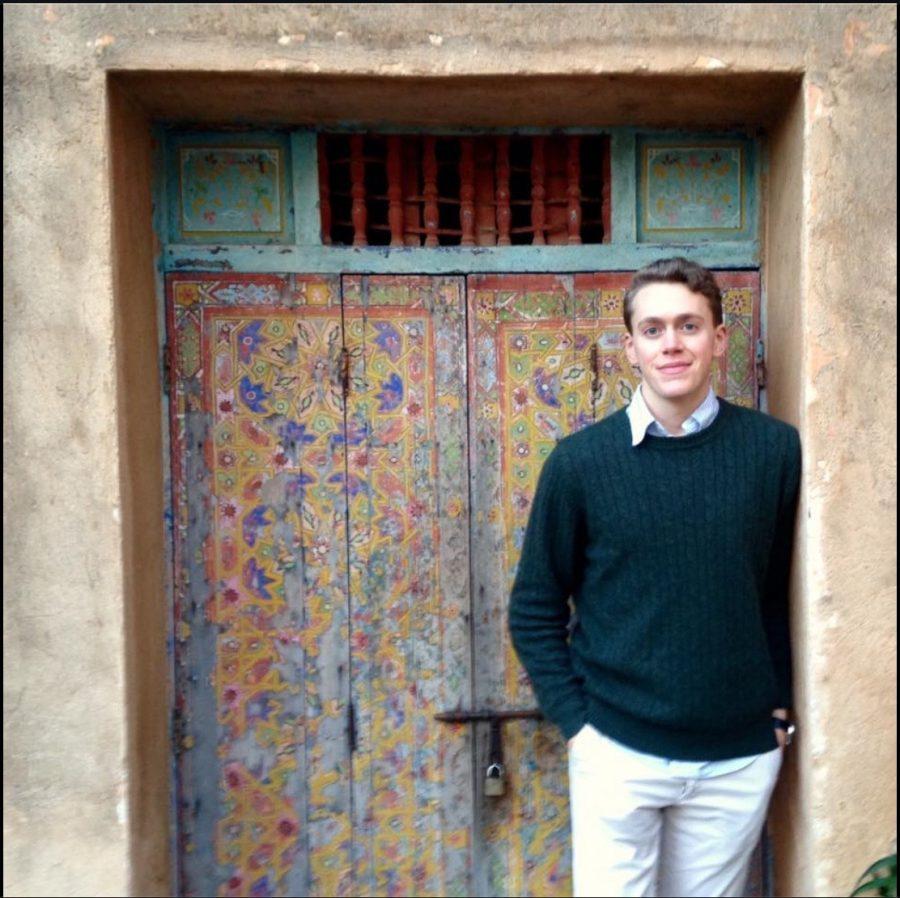Talking to the NYU Abu Dhabi Senior Awarded a Rhodes Scholarship
Guillaume Sylvain is one of three who have recently been named Rhodes scholars.
November 30, 2016
Arabic and activism landed NYU Abu Dhabi senior Guillaume Sylvain the Rhodes Scholarship — one of only three NYU students to receive the prestigious award this year. Sylvain researches the bias in secondary school textbooks and their implications on the relatively young city of Abu Dhabi. He also serves as a chairperson for ADvocacy, a student activist group at Abu Dhabi for which he serves as an Arabic translator and is a crewmember with Refugee Rescue UK.
Only 32 students nationwide are chosen to receive the Rhodes Scholarship through an intensive and highly competitive process of applications, interviews and recommendations. Students granted the scholarship receive full financing to attend the University of Oxford for two or three years to continue research without the economic burden. Earlier this week, WSN talked with Melissa Godin, another NYU student who received the prestigious honor.
WSN sat down with Sylvain about the process of applying to become a Rhodes Scholar, the work he has done up to this point and what he hopes to accomplish during his time next year at the University of Oxford.
WSN: Where do you call home?
Guillaume Sylvain: I grew up in Quebec City, in a French-speaking household, then travelled to Wales to complete my International Baccalaureate degree at UWC Atlantic College, an international school by the Bristol Channel.
WSN: Why did you choose NYU (and NYU Abu Dhabi specifically)?
GS: When I started searching for undergraduate education opportunities, I had already been studying Middle Eastern history and Arabic for two years, and was looking for a program that would enable me to explore that field further. The choice of NYU Abu Dhabi was thus an obvious one.
WSN: How did you become interested in studying Arabic and the Middle East?
GS: When I arrived at UWC Atlantic College in Wales, I was keen on learning a new language and quickly realized that Arabic was taught. Instructors then advised me to consider studying modern Middle Eastern history in parallel. At the time, I thought I had a fairly good grasp of world history, but the moment we started discussing the decline of the Ottoman Empire, I realized that the Middle East was a region we, in North America, were keen to invade, but seldom learned about.
Since then, my academic trajectory, complemented by the friendships I built with students from the region, my numerous visits to its different corners and my experience living in Abu Dhabi for three years, have incredibly expanded the way I understand and appreciate the historical position of the Middle East region within global flows of migration and knowledge sharing.
WSN: Can you speak a bit about your experiences with Refugee Rescue UK and your other advocacy work?
GS: Midway through my undergraduate career in Middle Eastern studies, I was taken by this sense of guilt and frustration. We sat and debated the fate of the Middle East, discussed the politics of gender and sexuality in the Gulf and wrote essays on deconstructing orientalist retellings of local histories. Yet, around our bubble of knowledge and idea-sharing, people across the region were suffering the atrocities of war, a war which we could have not felt more removed from.
This feeling of anger and powerlessness is what drew me to, if anything, seek to be present and engage in our generation’s bloodiest conflict. I had obtained my lifeboat navigation certification in Wales and figured that being an Arabic translator off Lesbos was the best way to leverage my skill-set to bring some form of contribution to the multifaceted conflict in Syria and beyond.
In parallel to this experience, I have also committed to work with migrant worker communities through our student organization ADvocacy. Far from pretending that we alleviate the vulnerabilities some may be facing, we are hoping to build bridges to expand our notions of community by offering a range of workshops and hosting events with groups both on and off campus. Additionally, I have been committed to supporting the work of Anchorage, our LGBT student group on campus, which provides support to members of our community.
WSN: What was the most interesting thing you learned during the process of applying for the Rhodes Scholarship? Was there anything surprising you encountered during this?
GS: The most interesting and helpful part of this process for me, in addition to meeting a group of other talented and socially engaged young people from across Canada, was writing the personal statement. Rarely do we find the time to sit down and think about the convictions that animate our academic pursuits and community engagements. By sitting down for a period of two weeks over the summer, in my family home in Quebec City, to reflect on my life trajectory, was a unique moment of growth and introspection.
WSN: What do you hope to do during your time at Oxford? Do you know which specific college you’ll study at?
GS: I am not sure at the moment. I am still looking at different programs and hope to select one that offers me the opportunity to build on my Middle East studies knowledge to conduct work across cultural diplomacy and international law.
WSN: Do you have any advice for prospective Rhodes Scholarship applicants?
GS: This may sound cliche, but it really is what it is: do what you feel passionate about. As opposed to getting involved in a dozen initiatives simultaneously, focus on those that you feel invested in. Additionally, finding ways to intellectually reflect on one’s community engagement and choices is helpful not only for this process, but for life and personal growth in general.
Email Téa Kvetenadze [email protected].
























































































































































